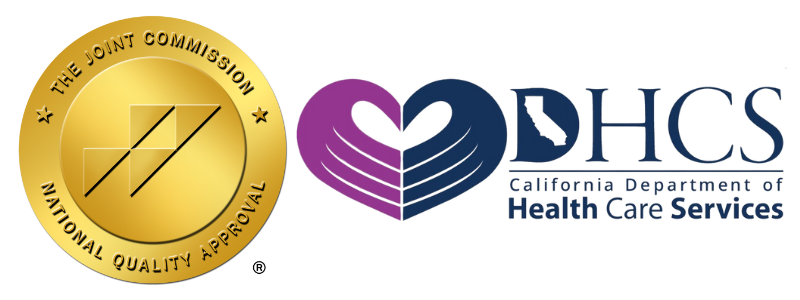Importance of Community in Sober Living Environments
In sober living environments, the sense of community plays a crucial role in the healing process. It provides individuals with the support and structure needed to maintain sobriety and rebuild their lives.
Building a Supportive Community
A supportive community is the backbone of any effective sober living environment. By fostering connections among residents, we create a network of individuals who understand and share similar experiences. This mutual understanding helps to reduce feelings of isolation and promotes a sense of belonging.
| Aspect | Benefit |
|---|---|
| Shared Experiences | Reduces isolation |
| Mutual Support | Enhances emotional well-being |
| Sense of Belonging | Promotes stability |
In our community, residents are encouraged to participate in group activities and discussions, which help to build trust and camaraderie. These interactions are essential for creating a safe space where individuals feel comfortable sharing their struggles and triumphs.
Encouraging Accountability and Responsibility
Accountability and responsibility are key components of successful recovery. In a community setting, residents are encouraged to take responsibility for their actions and hold each other accountable. This collective approach helps to reinforce positive behaviors and discourage relapse.
| Aspect | Benefit |
|---|---|
| Peer Accountability | Reduces risk of relapse |
| Personal Responsibility | Promotes self-discipline |
| Collective Support | Strengthens commitment to sobriety |
By participating in regular check-ins and group meetings, residents learn to set and achieve personal goals. This process not only aids in their recovery but also prepares them for a successful transition back into society.
In summary, the importance of community in sober living environments cannot be overstated. By building a supportive network and encouraging accountability, we create a foundation for lasting recovery and personal growth.
Benefits of Community in Healing
Emotional Support and Understanding
In sober living environments, the sense of community plays a crucial role in the healing process. Emotional support and understanding from peers who share similar experiences can significantly enhance recovery. When individuals feel understood and supported, they are more likely to open up about their struggles and progress.
| Benefit | Description |
|---|---|
| Emotional Support | Provides a safe space to express feelings and challenges. |
| Understanding | Fosters empathy and shared experiences among residents. |
| Reduced Isolation | Helps individuals feel less alone in their journey. |
Peer Influence and Positive Reinforcement
Peer influence within a community can lead to positive behavioral changes. When individuals see their peers making progress, it can motivate them to stay committed to their own recovery. Positive reinforcement from the community encourages healthy habits and discourages relapse.
| Benefit | Description |
|---|---|
| Peer Influence | Encourages individuals to adopt positive behaviors. |
| Positive Reinforcement | Provides encouragement and recognition for progress. |
| Accountability | Promotes responsibility and adherence to recovery goals. |
The benefits of community in healing are evident in the emotional support and understanding, as well as the positive influence and reinforcement provided by peers. These elements are essential in creating a nurturing environment that fosters long-term recovery and personal growth.
Creating a Safe and Nurturing Environment
In sober living environments, creating a safe and nurturing atmosphere is essential for the healing process. This involves establishing trust and connection, as well as fostering a sense of belonging and inclusion.
Establishing Trust and Connection
Trust and connection are fundamental components of a supportive community. When individuals feel safe and understood, they are more likely to open up about their struggles and seek help. We prioritize building trust through consistent and compassionate interactions.
| Key Elements | Description |
|---|---|
| Consistent Communication | Regular check-ins and open dialogue help build trust. |
| Compassionate Support | Empathy and understanding foster a safe space. |
| Confidentiality | Ensuring privacy encourages openness and honesty. |
Fostering a Sense of Belonging and Inclusion
A sense of belonging and inclusion is crucial for individuals in recovery. Feeling part of a community can significantly enhance one’s motivation and commitment to the healing process. We focus on creating an inclusive environment where everyone feels valued and accepted.
| Key Elements | Description |
|---|---|
| Inclusive Activities | Group activities that involve everyone promote unity. |
| Recognition of Individuality | Celebrating each person’s unique journey fosters inclusion. |
| Peer Support | Encouraging peer interactions strengthens community bonds. |
By establishing trust and connection, and fostering a sense of belonging and inclusion, we create a nurturing environment that supports the healing journey. This approach underscores why community matters in sober living environments.
Community Activities and Engagement
Engaging in community activities is a cornerstone of sober living environments. These activities foster a sense of belonging and provide essential support for individuals on their recovery journey.
Group Therapy and Counseling Sessions
Group therapy and counseling sessions are integral components of our community activities. These sessions offer a structured environment where individuals can share their experiences, challenges, and successes. By participating in group therapy, members can gain insights from others who are on similar paths, fostering mutual understanding and empathy.
| Session Type | Frequency | Duration |
|---|---|---|
| Group Therapy | 3 times a week | 1 hour |
| Individual Counseling | Weekly | 1 hour |
| Family Counseling | Bi-weekly | 1.5 hours |
Recreational and Social Events
Recreational and social events play a vital role in building a supportive community. These activities provide opportunities for individuals to relax, have fun, and develop meaningful connections with their peers. Engaging in recreational activities helps to reduce stress and promotes a healthy, balanced lifestyle.
| Event Type | Frequency | Duration |
|---|---|---|
| Sports and Fitness Activities | Weekly | 2 hours |
| Art and Music Therapy | Bi-weekly | 1.5 hours |
| Community Outings | Monthly | 3 hours |
By participating in these community activities, individuals in sober living environments can build strong, supportive networks that are crucial for their healing and long-term recovery.
Long-Term Impact of Community Support
Sustaining Recovery and Preventing Relapse
In sober living environments, the long-term impact of community support is crucial for sustaining recovery and preventing relapse. When individuals are surrounded by a supportive community, they are more likely to stay committed to their recovery journey. The sense of belonging and shared experiences within the community provide a strong foundation for maintaining sobriety.
| Factor | Impact on Recovery |
|---|---|
| Emotional Support | Reduces feelings of isolation and depression |
| Accountability | Encourages adherence to recovery plans |
| Peer Influence | Promotes positive behavior and lifestyle changes |
| Shared Experiences | Provides understanding and empathy |
Developing Lifelong Relationships and Bonds
Another significant long-term impact of community support in sober living environments is the development of lifelong relationships and bonds. These connections are built on trust, mutual respect, and shared goals. The friendships formed in these environments often extend beyond the recovery period, providing ongoing support and encouragement.
| Benefit | Description |
|---|---|
| Trust | Establishes a safe space for open communication |
| Mutual Respect | Fosters a positive and inclusive atmosphere |
| Shared Goals | Strengthens commitment to sobriety |
| Ongoing Support | Provides continuous encouragement and assistance |
By focusing on the importance of community in sober living environments, we can better understand why community matters in these settings. The support, accountability, and relationships formed within these communities play a vital role in the long-term success of individuals on their recovery journey.








